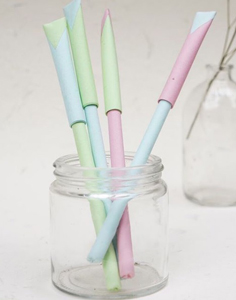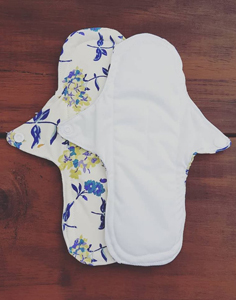In an era where fashion brands are increasingly criticised for the environmental issues raised by their manufacture, Tentree promises to be an ‘environmentally progressive’ and responsible brand.
A clothing brand that was launched in 2012, Tentree aims to give back to the environment for what it is giving us. As the name suggests, Tentree has the policy of planting ten trees for every item that they sell. In seven years, they claim to have planted over 26 million trees.
‘Protect the world you play in’ is the motto the brand upholds.
In a video, talking about what gave them the impetus to start Tentree, co-founders Dave Luba and Kalen Emsley say they were struck by TOMS Shoes’ idea of ‘One for One’. While TOMS donated shoes for every purchase made, Tentree decided to plant trees for every item they sold.
The company's largest project is currently Madagascar, with 15 million trees being planted there. Other projects encompass places like Senegal, Haiti, Indonesia, Nepal, Cambodia, Canada and the US.
In a sign that sustainable manufacturing has come to stay, the company manufactures its products from sustainable and environment-friendly materials like lyocell, hemp, organic cotton and recycled polyester. The Mobius collection of bags is made from an algae-based fabric.
The brand has a strong online presence, especially on Instagram through which it connects to millions across the globe. They also make it a point to keep their followers updated about their tree-planting projects. In addition to the brand’s official page, they also have a subsidiary page for their ambassadors to promote the cause of sustainable development.
Minimal waste
Sahar Mansoor likes to describe herself as a ‘zero-waste’ enthusiast. She lives up to this description by unburdening herself from the invasion of plastic in her day-to-day life.
Bare Necessities is a venture based in Bengaluru born out of the idea of minimising the production of waste and promoting ethical consumption. Mansoor, the brains behind Bare Necessities, created the brand as a solution to the social justice issues faced by the rag-pickers across India and to make it easy and accessible for people who live mindfully to contribute to minimising waste generation.
Bare Necessities has a wide range of personal care, home care and lifestyle products. The brand claims that raw materials for the products are ethically sourced from organic farmers. The brand takes pride in the packaging methods they use. Reusable glass, labels made out of recycled paper and paper tapes are used to package their products.
Bare Necessities is a pioneering step towards sustainability development in India. With waste generation in the country hitting 150,000 tonnes of municipal solid waste being created per day, cutting down waste generation becomes the need of the hour. With over 2,000 customers in a matter of months after its inception, Bare Necessities hopes to make a mark in Indian social entrepreneurship arena.

Tackling period poverty
Mana Care was one among the 12 winners in the plastic waste category of the ‘Low Carbon Lifestyles Challenge’, run by the UN Environment Programme. Angelica Salele and Isabell Rasch, two entrepreneurs from Samoa, were the first to market reusable, sustainable and affordable female hygiene products to the women in Samoa and the entire Pacific.
The two-women venture handcrafts their cloth pads from three types of material which are 80 per cent biodegradable. They claim that one set of cloth pads can last up to five years.
Their products are an alternative to the expensive, single-use, sanitary napkins that are made with toxic plastic materials. Mana care products hope to provide a solution to period poverty. Period poverty is the lack of access to sanitary products, menstrual hygiene education, toilets, hand washing facilities, and waste management. The products serve the dual purpose of sustainable development and helping the women community in Samoa.




